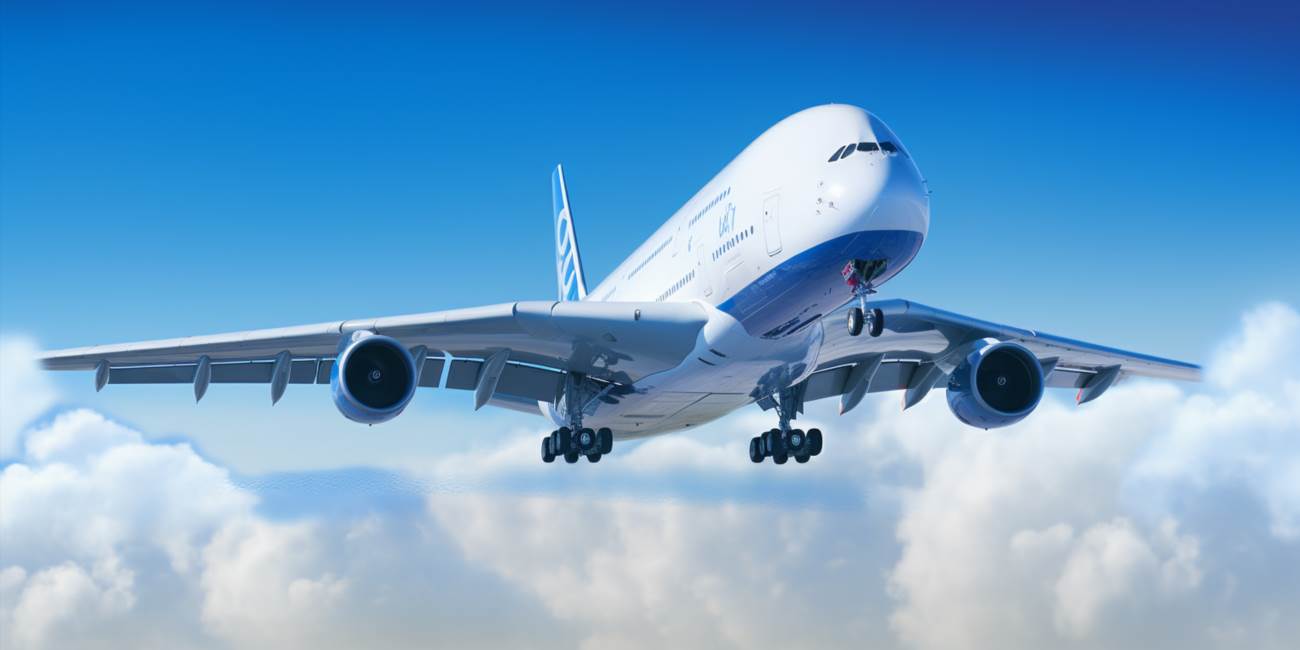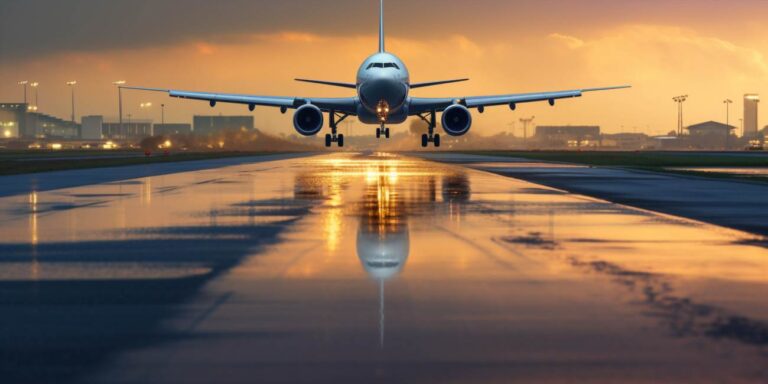One of the prominent players in the Airbus game is Emirates, known for its luxurious flights and extensive network. Operating a fleet that includes the A380, the world’s largest passenger aircraft, Emirates has made a mark in the aviation industry with its commitment to comfort and innovation.
Another key player on the Airbus stage is Lufthansa, a German airline recognized for its efficiency and reliability. Lufthansa’s fleet boasts a variety of Airbus models, and the distinctive A320neo can often be spotted in its iconic livery at airports worldwide.
For those who frequent domestic travel in the United States, Delta Air Lines is a familiar name. This major American carrier incorporates Airbus aircraft into its operations, with the A321 being one of the models in its arsenal. The airline’s commitment to a diverse fleet ensures that passengers experience top-notch service on various routes.
Heading over to the Asia-Pacific region, we find China Southern Airlines taking center stage. This airline, based in Guangzhou, operates a fleet that includes the A330 and A380, contributing to the ever-growing connectivity in the region.
Recognizing these Airbus models is not just about spotting the logo but also appreciating the nuances of their design. The A350 XWB, with its distinctive winglets and sleek fuselage, is a common sight in the fleets of airlines like Cathay Pacific. This Hong Kong-based carrier ensures that passengers experience the cutting edge of technology when they step on board.
As you traverse the skies with various airlines, keep an eye out for the unmistakable silhouette of Airbus aircraft. Whether it’s the short-haul efficiency of the A220 or the long-haul prowess of the A380, these planes are the workhorses of global aviation, connecting continents and making the world a smaller place.
Major us airlines operating airbus a320 jets for domestic routes
The airline industry in the United States has witnessed a significant presence of Airbus A320 jets in its domestic routes. These state-of-the-art aircraft are favored by major carriers for their efficiency, advanced technology, and passenger comfort.
Among the major US airlines that operate Airbus A320s on domestic routes, Delta Air Lines, American Airlines, and JetBlue Airways stand out. These carriers have strategically integrated the A320s into their fleets to cater to the growing demand for domestic air travel.
One of the key advantages of the Airbus A320 is its fuel efficiency, making it a cost-effective choice for airlines operating within the country. The aircraft’s modern avionics and innovative design contribute to its popularity among both airlines and passengers.
With a seating capacity ranging from 140 to 240 passengers depending on the configuration, the A320 is suitable for various routes, from short-haul flights to longer domestic journeys. This flexibility allows airlines to optimize their operations and offer a diverse range of options to travelers.
Moreover, the Airbus A320 is equipped with advanced entertainment systems, comfortable seating, and spacious cabins, enhancing the overall in-flight experience for passengers. Airlines often highlight these features as part of their commitment to providing a superior travel experience.
In terms of routes, these major airlines deploy Airbus A320s on a variety of domestic services, connecting major cities and regional hubs across the country. This extensive network allows passengers to access a wide range of destinations with the convenience of modern and efficient aircraft.
It’s worth noting that the Airbus A320neo variant, known for its enhanced fuel efficiency and reduced environmental impact, has gained traction among airlines committed to sustainability. This reflects a broader industry trend towards adopting greener technologies and reducing carbon emissions.
International airlines using airbus planes for long-haul flights

International airlines have revolutionized long-haul travel by opting for state-of-the-art Airbus planes, ensuring passengers experience unparalleled comfort and efficiency. Leading the pack is Lufthansa, a German giant that entrusts its long-haul operations to a fleet of modern Airbus aircraft. These cutting-edge planes not only embody innovation but also prioritize passenger well-being.
Air France, another major player in the aviation industry, has embraced the superior capabilities of Airbus for its extensive long-haul network. The airline’s commitment to delivering a seamless travel experience is reflected in its choice of these advanced aircraft. The marriage of French elegance and Airbus technology ensures passengers enjoy a journey that transcends expectations.
Similarly, KLM has joined the ranks of airlines that recognize the prowess of Airbus for long-haul flights. The Dutch carrier’s partnership with Airbus symbolizes a commitment to reliability and environmental sustainability. With a focus on reducing carbon footprint, KLM relies on the fuel-efficient features of Airbus planes to navigate the vast expanses of international skies.
Across the English Channel, British Airways has woven a tapestry of transcontinental connections, all powered by the engineering marvels crafted by Airbus. The iconic British carrier stands as a testament to the synergy between tradition and innovation. Passengers aboard British Airways flights experience the harmonious blend of timeless service and cutting-edge aviation technology.
Venturing into the Middle East, the likes of Qatar Airways, Emirates, and Etihad have elevated long-haul travel to unprecedented levels with their Airbus-powered fleets. Qatar Airways dazzles the skies with its commitment to luxury, seamlessly integrated with the reliability of Airbus aircraft. Meanwhile, the iconic Emirates A380 has become synonymous with opulence, offering passengers an unrivaled experience in the clouds. Etihad, the national airline of the United Arab Emirates, mirrors this commitment to excellence through its Airbus-operated long-haul services.
Crossing the Atlantic, Air Canada has embraced the efficiency and performance of Airbus planes for its long-haul journeys. The Canadian carrier’s fleet showcases a dedication to providing passengers with a safe and comfortable voyage across oceans. The collaboration between Air Canada and Airbus underlines the airline’s commitment to connecting the world with reliable and advanced aviation solutions.
Regional aviation companies flying smaller airbus jets
Regional aviation is a vibrant sector in the aviation industry, with several companies making significant strides by operating smaller Airbus jets. Among these companies, Horizon stands out for its commitment to providing reliable regional air services. Envoy and Endeavor are also prominent players in this niche, contributing to the accessibility of regional destinations.
When it comes to regional connectivity, Piedmont plays a crucial role, connecting smaller communities and ensuring seamless travel experiences. These regional carriers often operate under major airline brands, providing an essential link between smaller airports and major hubs.
Mesa Airlines is another noteworthy participant in this space, emphasizing the significance of regional connections. They contribute to the overall accessibility of diverse destinations, catering to the needs of passengers who prefer regional travel options.
In the realm of regional aviation, SkyWest has earned a stellar reputation for its operational excellence. Collaborating with major airlines, SkyWest operates a fleet of smaller Airbus jets, facilitating efficient regional travel for passengers.
Compass Airlines, while no longer in operation, played a role in shaping the regional aviation landscape. Its history is a testament to the dynamic nature of the industry, where companies continually adapt to meet changing demands and market conditions.
For a unique perspective on regional air travel, Cape Air deserves special mention. Operating a fleet of smaller aircraft, Cape Air focuses on connecting communities and providing convenient travel options for passengers in regional areas.
As we delve into the world of regional aviation, it becomes evident that these companies collectively contribute to the accessibility and convenience of air travel. The deployment of smaller Airbus jets allows them to navigate regional airports efficiently, offering passengers a plethora of options for reaching their desired destinations.
Horizon, Envoy, Endeavor, Piedmont, Mesa, SkyWest, Compass, and Cape Air exemplify the diversity and dynamism within the regional aviation sector. Their operations showcase the adaptability and resilience required in an ever-evolving industry, where meeting the unique demands of regional passengers is a priority.
Table:
| Company | Key Focus |
|---|---|
| Horizon | Reliable regional air services |
| Envoy | Contributing to regional accessibility |
| Endeavor | Prominent player in regional air travel |
| Piedmont | Connecting smaller communities |
| Mesa | Emphasizing regional connectivity |
| SkyWest | Operational excellence in regional aviation |
| Compass | Historical significance in regional air travel |
| Cape Air | Focus on connecting communities regionally |






